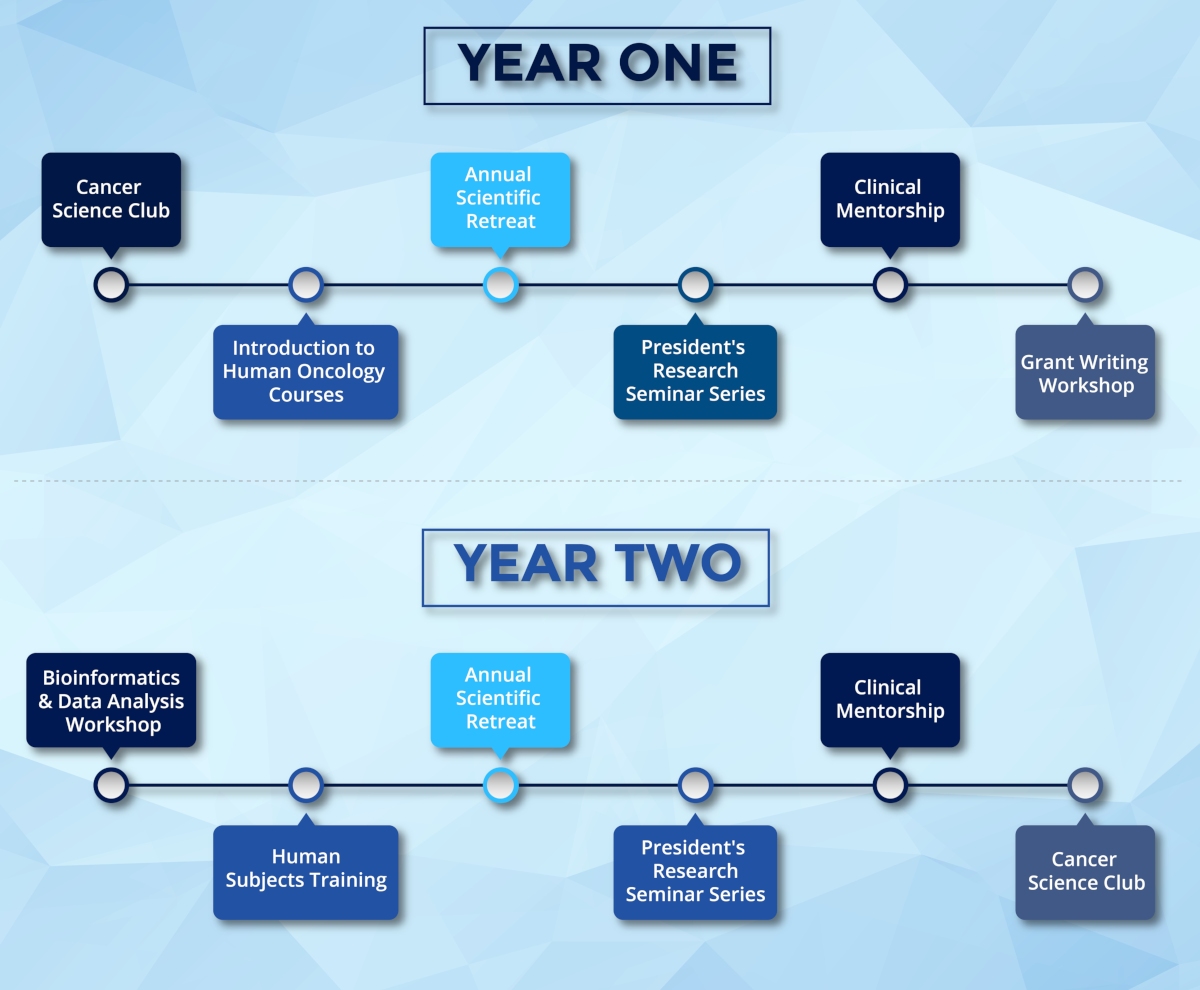
We provide a structured learning environment where you will conduct a project under the mentorship of a successful, independent translational researcher. You will also select a clinical mentor who will provide guidance on your research project from a clinical perspective.
Didactic sessions, seminar series, and a retreat all reinforce your scientific training. You will also have the opportunity to observe doctor-patient interactions and medical procedures, and will learn about cancer diagnosis and staging during a rotation in the Department of Pathology.
In addition to the core curriculum, all trainees have the opportunity to select from among the following elective courses:
- Translational Research Seminar Series
- Cold Spring Harbor Laboratory/Memorial Sloan Kettering Cancer Center Translational Topics in Cancer Symposium
- Teaching
- Hospital grand rounds and disease management meetings
- American Association for Cancer Research pathobiology courses
- Other biomedical conferences
Funding
All TROT trainees receive annual support including a stipend, training expenses, and travel costs.
Training Expenses
Training expenses may include lab supplies, equipment, consultant costs, animal costs, and faculty/staff travel directly related to the research training program. All training expenses must be directly related to the cost of accomplishing your research goal(s).
Travel Costs
TROT supports travel expenses that enable trainees to attend scientific meetings and workshops that are necessary for the research training experience.
Annual Review
At the end of each year, each trainee submits a progress report to the Training Committee, which includes:
- Research abstracts
- Publications and presentations at national meetings
- Presentations in laboratory meetings
- Attendance and participation in workshops, courses, and seminars
- Research project progress report
- Submission of grant application
- Manuscript publication record
In addition to your progress report, your preceptor and clinical advisor will submit an evaluation to a member of the training committee twice per year.